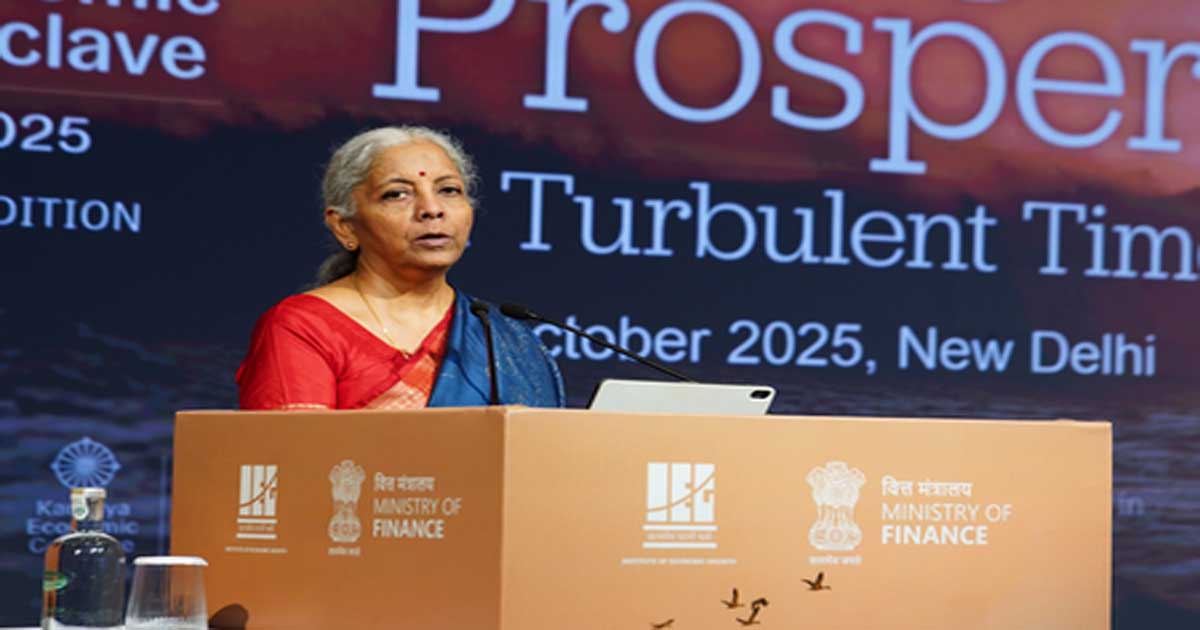Business
Non-alcoholic beverage processing will enable doubling of farmers’ income, create jobs

Non-alcoholic beverage processing will not only help reduce fruit wastage in the supply chain but also enable the doubling of farmers’ income, create jobs, and enhance investment in manufacturing, a report released on Friday said.
The report ‘Contribution of Non-Alcoholic Beverages Sector in Indian Economic Growth and #AtmanirbharBharat’ was released by Sudhanshu Pandey, secretary, Department of Food and Public Distribution (DFPD), at an event organised by the Indian Beverage Association.
The objective of the report is to understand the contribution of the non-alcoholic beverages sector towards the Indian economy, examine the strengths and best practices, identify challenges and suggest a way forward to make India one of the world’s leading beverage processing hub as the country sets its vision for Amrit Kaal, i.e., for India @2047.
The report pointed out India’s position on both supply and demand side. On the supply side, India is the largest global producer of several raw materials such as banana, mango, lime, lemon, papaya, milk and sugar used in manufacturing non-alcoholic beverages while on the demand side, with a large middle-class and young consumers who are willing to experiment with different products, India is an attractive investment destination for beverage companies, it said.
Around 62 per cent of farmers received high yielding plant material from the companies but still mentioned that the other key areas of support that they needed included technology and equipment for drip irrigation farmers identified the need for government support in three areas — financial assistance, training and knowledge enhancement and logistics and transportation.
“Private partnership can play a major role in training, increasing productivity and improving infrastructure,” the report said.
The report also highlighted that by product categories, in 2020, in fruit and vegetable juices, India ranked 59th among global exporters while Brazil ranked first; in natural or artificial mineral waters and aerated waters (HS code 2201), India ranked 65th while France is the topmost exporter followed by China.
“Thus, in spite of being the topmost producer of many raw materials, India is a small player in global trade,” it added.
Business
Indian stock market ends holiday-shortened week on positive note

Mumbai, Oct 4: The Indian equities closed the holiday-shortened week with a positive bias after recent corrections as investors’ confidence was reinforced with the RBI’s growth stance, analysts said on Saturday.
On Friday, Sensex ended the session at 81,207.17, up 223.86 points or 0.28 per cent. Nifty closed at 24,894.25, up 57.95 points or 0.23 per cent. The Nifty extended its pullback for the second straight session, crossing above its key 50-DMA at 24,830 and forming a bullish candle on the daily chart. After last week’s steep decline, the index displayed signs of recovery by closing above the 24,800 mark.
According to market watchers, upgrading the FY26 GDP growth forecast by the RBI to 6.8 per cent and announcing landmark reforms led to outperformance in the banking sector.
“Metals continued their upward momentum, supported by optimism over an anticipated Fed rate cut in October, a softer dollar index, and steady base metal prices,” said Vinod Nair, Head of Research, Geojit Investments Ltd.
Meanwhile, gold extended its safe-haven appeal, while silver rose on the back of strong industrial demand and supply-side constraints.
Consumer-facing sectors gained momentum on expectations of festive demand, whereas IT and pharma lagged amid the lack of progress on the US-India trade pact, said analysts.
According to a note by Bajaj Broking Research, benchmark indices ended the truncated week on a positive note, posting gains of nearly 1 per cent.
PSU bank stocks were another major contributor, with the Nifty PSU Bank index climbing over 4 per cent for the week. In Friday’s session, metals, PSU banks, and consumer durables led the gains, each rising between 1 per cent and 2 per cent.
Bank Nifty continue to demonstrate notable strength over the past 3-4 sessions. The formation of a bullish candle with a higher high and higher low in the daily chart signals continuation of the positive momentum underpinned by strength in large cap banking stocks.
Looking ahead, market momentum is expected to be supported by strong H2 FY26 earnings and seasonal demand tailwinds, though global trade developments and US policy actions could inject short-term volatility, said analysts.
The Fed’s recent 25-bps rate cut, coupled with prospects of further easing, is likely to bolster FII inflows into emerging markets, they added.
Business
India’s growth firmly anchored in domestic factors amid global volatility: FM Sitharaman

New Delhi, Oct 3: We are in an era of an unprecedented global volatility where rules of international engagement are being rewritten, but India’s growth is firmly rooted in domestic factors and the country’s capacity to absorb global shocks is strong, Finance Minister Nirmala Sitharaman said here on Friday.
She highlighted that India’s robust domestic factors minimise impact of global uncertainties.
“We are in a shifting global landscape which resembles a zero-sum approach. Indian economy is resilient and continues to grow sustainably,” FM Sitharaman said while delivering an inaugural address at the ‘Kautilya Economic Conclave 2025’ in the national capital.
“By 2047, becoming Viksit Bharat by self reliance does not mean we wish to be a closed economy. We have to reach 8 per cent GDP growth to get to the goal for a developed nation,” she told the gathering.
According to the Finance Minister, we cannot afford to be passive spectators in today’s era.
“We must be active participants. Nations need to make choices between new monetary architecture. No nation can insulate itself from systemic changes, we must prepare to engage with them. Tariffs, sanctions and decoupling strategies are reshaping supply chains. International institutions need to reflect today’s realities,” she stressed.
Finance Minister further stated that what we face is not a temporary disruption but a structural transformation.
“The scale of challenge is too big. We will be understating the challenge at hand; it is structural transformation,” she said.
“The world as a whole is looking to come out of uncertainty, the global order is shifting. The world that emerged out of cold war and pushed for globalisation seems to be a thing of the past. Rules of international engagement are being rewritten,” she mentioned.
FM Sitharaman pointed out that the global order is shifting, with multilateral institutions currently undermining confidence in the international community. She cited the recent G20 discussions, where experts deliberated on the need for reforms in multilateral institutions to restore stability.
Highlighting India’s twin-track approach, the finance minister said the nation aims to simultaneously attain developed economy status by 2047 and strengthen self-reliance, clarifying that self-reliance does not imply pursuing a closed economy.
Business
Sensex, Nifty open lower over sustained FII selling

Mumbai, Oct 3: The Indian benchmark indices opened with mild losses on Friday due to sustained FII selling, despite positive global cues and market optimism driven by the Reserve Bank of India’s dovish pause.
As of 9.20 am, the Sensex was down 191 points, or 0.24 per cent at 80,792 and the Nifty declined 56 points, or 0.23 per cent at 24,780.
The broad cap indices, Nifty Midcap 100 and Nifty Smallcap 100, inched up 0.22 and 0.14 per cent respectively. Tata Steel, Axis Bank, Kotak Mahindra Bank, Tata Motors and Asian Paints were among major gainers on the Nifty pack, while losers included Max Healthcare, Bajaj Finance, Shriram Finance and ICICI Bank, among others.
Among sectoral indices, Nifty Metal, the top gainer, advanced 0.89 per cent. Nifty PSU Bank (up 0.59 per cent) and Nifty Pharma (up 0.30 per cent) were other major gainers. Nifty Media and Nifty FMCG were the top losers down 0.65 per cent and 0.45 per cent respectively.
Analysts said that from a technical perspective, a sustained move above 24,900 could pave the way for a rally toward 25,000 and 25,150. The immediate support is placed at 24,750 and 24,600, which may act as potential entry points for long trades.
The US markets ended in the green zone overnight, as Nasdaq edged up 0.39 per cent, the S&P 500 added 0.06 per cent, and the Dow moved up 0.17 per cent in the last trading session.
Asia-Pacific markets mostly rose Friday, tracking Wall Street gains as investors shrugged off the US government shutdown. Investors are waiting to see how long the shutdown will last to assess the gravity of its economic repercussions.
While China’s Shanghai index added 0.52 per cent, and Shenzhen advanced 0.35 per cent, Japan’s Nikkei added 1.44 per cent, while Hong Kong’s Hang Seng Index declined 0.84 per cent. South Korea’s Kospi added 2.70 per cent.
Analysts said that the central bank’s bold initiatives to boost credit growth in the economy can positively sustain the momentum in the market, particularly in Bank Nifty. However, the sustained selling by FIIs in the market is unlikely to sustain this momentum.
FIIs are likely to further accelerate selling since the market construct provides them the opportunity to sell aggressively. Robust buying from DIIs can provide some support to the market, particularly in large-cap auto stocks, which have strong fundamental support now, they added.
In the last trading session on Wednesday, foreign institutional investors (FIIs) sold equities worth Rs 1,605 crore, while domestic institutional investors (DIIs) were net buyers of equities worth Rs 2,916 crore.
-

 Crime3 years ago
Crime3 years agoClass 10 student jumps to death in Jaipur
-

 Maharashtra1 year ago
Maharashtra1 year agoMumbai Local Train Update: Central Railway’s New Timetable Comes Into Effect; Check Full List Of Revised Timings & Stations
-

 Maharashtra12 months ago
Maharashtra12 months agoMumbai To Go Toll-Free Tonight! Maharashtra Govt Announces Complete Toll Waiver For Light Motor Vehicles At All 5 Entry Points Of City
-

 Maharashtra1 year ago
Maharashtra1 year agoFalse photo of Imtiaz Jaleel’s rally, exposing the fooling conspiracy
-

 National News12 months ago
National News12 months agoMinistry of Railways rolls out Special Drive 4.0 with focus on digitisation, cleanliness, inclusiveness and grievance redressal
-

 Maharashtra11 months ago
Maharashtra11 months agoMaharashtra Elections 2024: Mumbai Metro & BEST Services Extended Till Midnight On Voting Day
-

 National News1 year ago
National News1 year agoJ&K: 4 Jawans Killed, 28 Injured After Bus Carrying BSF Personnel For Poll Duty Falls Into Gorge In Budgam; Terrifying Visuals Surface
-

 Crime12 months ago
Crime12 months agoBaba Siddique Murder: Mumbai Police Unable To Get Lawrence Bishnoi Custody Due To Home Ministry Order, Says Report
















